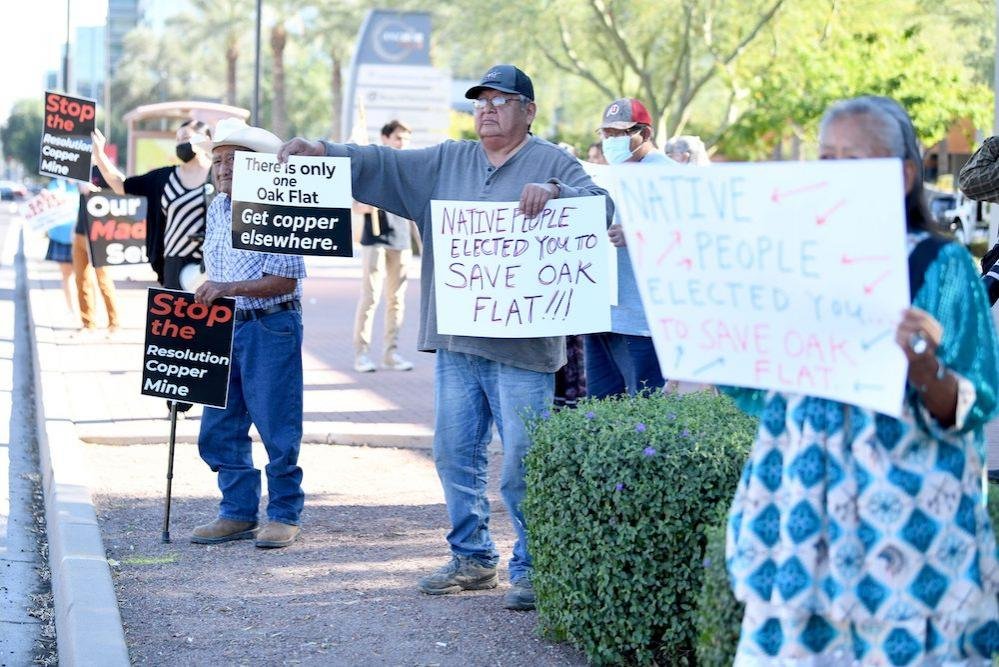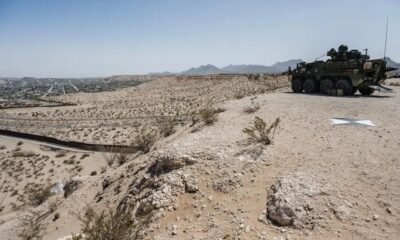Business
Judge Halts Oak Flat Mine Construction, Safeguarding Apache Sacred Site—For Now!

In a significant development, a federal judge has temporarily halted the construction of a copper mine on a sacred Apache site in Arizona, as the Supreme Court reviews the case. This decision marks a pivotal moment for the Apache community, who view the Oak Flat area as a vital part of their spiritual heritage.
Despite a planned transfer of 2,400 acres of this holy land to Resolution Copper as early as June 16, the U.S. Forest Service delayed the process, allowing the Apache petitioners to contest the action. A coalition of Western Apaches argued that the transfer and ensuing construction would severely disrupt their religious ceremonies, which can only occur at Oak Flat.
U.S. District Judge Steven Logan supported this stance, indicating that the Apache group had demonstrated the likelihood of irreparable harm if the transfer proceeded. In his 17-page ruling, he stated, “It is abundantly clear that even in the short term… they have presented serious questions on the merits that warrant the Supreme Court’s careful scrutiny.”
The Apache Stronghold previously filed a lawsuit against the federal government in 2021, claiming that an environmental impact statement overlooked the devastating effects the mine would have on their sacred land. They argued this not only violated the Religious Freedom Restoration Act but also the First Amendment.
Although the Ninth Circuit initially denied the preliminary injunction request twice, the Supreme Court has been reviewing the case for nearly a year without a decision to hear arguments. If the court rules in favor of the Apaches, the land transfer will be frozen while the original case is evaluated.
Former San Carlos Apache Chairman Wendsler Nosie condemned the situation, emphasizing that their spiritual lifeblood is at stake. “We are grateful the judge stopped this land grab…,” he stated, highlighting the urgency of the matter.
In 2021, the federal government had recognized the need for time between the issuance of the environmental statement and the land transfer. However, a recent statement from a Department of Justice attorney revealed intentions to proceed with the transfer immediately upon publication of the new environmental impact statement, expected as soon as June 15.
Luke Goodrich, attorney for the plaintiffs, criticized the government’s rush and expressed gratitude for the ruling that safeguards Oak Flat during the ongoing legal process. “This ruling ensures that Oak Flat remains protected as the legal process continues,” he affirmed.
Activists gathered outside the federal courthouse to advocate for their cause, with leaders like Chiricahua Apache Naelyn Pike emphasizing their commitment to preserving their way of life. Judge Logan acknowledged the profound implications of the case for religious liberty in his order, reinforcing the significance of this legal battle.
The Forest Service is now restricted from initiating the land transfer until a final decision is reached regarding the plaintiffs’ petition. Judge Logan posed a critical question, asking what constitutes a case worthy of further consideration if not this one.
The Department of Justice has yet to release a comment on the latest ruling.


















